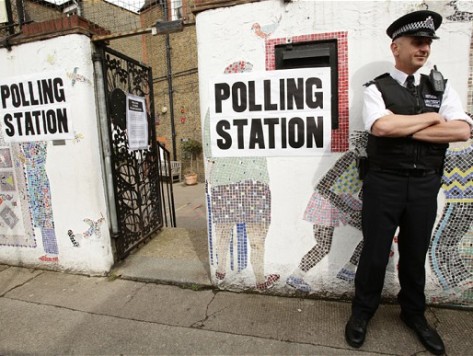
The total size of Britain’s electorate is expected to drop by up to five million when the electoral register is ‘cleaned up’ to remove anyone who has not personally signed up for it. The individual voter registration policy was brought in to curtail postal vote fraud, which is now thought to be rife in some communities.
Traditionally one person in each household would list the names of all the adults in it, but they would all have to vote in person. This meant that any attempt at fraud would involve the same person visiting the same polling station multiple times using different names: something that rarely happened.
However, Labour changed the postal vote system to allow anyone to request one. They could then fill them out and return them without any real checks. Since this system was implemented it has been possible to commit fraud without ever visiting the polling station. It was done by creating fictitious residents in your home and requesting postal votes for all of them.
Although individual voter registration will help eliminate fictitious voters, there are still concerns about postal votes on demand. Andrew Stephenson MP, who represents Pendle in Lancashire, believes postal votes lead to legitimate voters being disenfranchised through ‘family voting’ the process by which the head of the family fills out the postal vote for everyone in the household.
When the issue of abolishing postal votes was raised in Parliament he said: “This is a particular issue in the South Asian community and indeed I have met Asian women in my constituency, who have told me they have no idea who they voted for as their husband did it.
“However, needless to say because of the close family ties and bonds of loyalty, this is not going to be reported to the police or investigated by anyone.
“Apart from electoral fraud taking place, and women and young people losing their right to vote in some households, such goings-on play into a narrative that gives an impetus to groups like the BNP and the EDL. I say we cannot allow this to happen.
“We cannot allow electoral fraud and the suspicion of electoral fraud to continue and become another reason for undermining community cohesion. It is clear that there is a cultural element to this.
“The current on the demand postal voting regime actively disenfranchises women and young people by allowing ‘family voting’ to occur. By family voting I mean where the head of a household will pledge everyone of his families votes to a particular political party.
“He can then ensure that this happens by watching other family members complete their postal ballots, or by completing the ballots himself, or indeed by completing them with an activist from the said political party.”
Despite the allegations of fraud Labour MPs are still campaigning against improved security. They say that there are already about seven million people who have not registered to vote in addition to the five million who are scheduled to come off the list by 2016.
Graham Allen, Labour MP for Nottingham North told the Independent: “I’m deeply concerned that there are 7m individuals who are not registered and that figure could go up, with more people disenfranchised when there is already a degree of cynicism about politics. It could be a further dangerous blow to the democratic political system.”
A spokesperson for the Electoral Commission said: “We are closely monitoring the transition to individual electoral registration. There’s still more work to do but it’s important to remember that no one will come off the electoral register because of this change before 2015.”

COMMENTS
Please let us know if you're having issues with commenting.